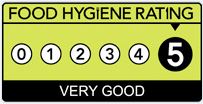In addition to those working in health and social care, and those living in care homes, SKS Swaminarayan Temple East London in collaboration with Ramgarhia Sikh Gurdwara (Neville Road) are offering COVID-19 vaccinations to anyone over the age of 60 and those over the age of 16 with the following conditions:
Health Conditions
Chronic respiratory disease
Individuals with a severe lung condition including those with asthma that requires continuous or repeated use of systemic steroids or
with previous exacerbations requiring hospital admission,
and chronic obstructive pulmonary disease (COPD) including
chronic bronchitis and
emphysema;
bronchiectasis,
cystic fibrosis,
interstitial lung fibrosis,
pneumoconiosis and
bronchopulmonary dysplasia (BPD).
Chronic heart disease and vascular disease
Congenital heart disease,
hypertension with cardiac complications,
chronic heart failure,
individuals requiring regular medication and/or follow-up for ischaemic heart disease.
This includes individuals with atrial fibrillation,
peripheral vascular disease or
a history of venous thromboembolism.
Chronic kidney disease
Chronic kidney disease at stage 3, 4 or 5,
chronic kidney failure,
nephrotic syndrome,
kidney transplantation.
Chronic liver disease
Cirrhosis,
biliary atresia,
chronic hepatitis.
Chronic neurological disease
Stroke,
transient ischaemic attack (TIA).
Conditions in which respiratory function may be compromised due to neurological disease (e.g. polio syndrome sufferers).
This includes individuals with cerebral palsy,
severe or profound learning disabilities,
Down’s Syndrome,
multiple sclerosis,
epilepsy,
dementia,
Parkinson’s disease,
motor neurone disease and related or similar conditions;
or hereditary and degenerative disease of the nervous system or muscles; or severe neurological disability.
Diabetes mellitus
Any diabetes, including diet-controlled diabetes.
Immunosuppression
Immunosuppression due to disease or treatment,
including patients undergoing chemotherapy leading to immunosuppression,
patients undergoing radical radiotherapy, solid organ transplant recipients, bone marrow or stem cell transplant recipients,
HIV infection at all stages,
multiple myeloma or genetic disorders affecting the immune system (e.g. IRAK-4, NEMO, complement disorder, SCID).
Individuals who are receiving immunosuppressive or immunomodulating biological therapy including, but not limited to, anti-TNF, alemtuzumab, ofatumumab, rituximab, patients receiving protein kinase inhibitors or PARP inhibitors,
and individuals treated with steroid sparing agents such as cyclophosphamide and mycophenolate mofetil.
Individuals treated with or likely to be treated with systemic steroids for more than a month at a dose equivalent to prednisolone at 20mg or more per day for adults.
Anyone with a history of haematological malignancy, including leukaemia, lymphoma, and myeloma
and those with systemic lupus erythematosus and rheumatoid arthritis, and psoriasis who may require long term immunosuppressive treatments.
Most of the more severely immunosuppressed individuals in this group should already be flagged as CEV. Individuals who are not yet on the CEV list but who are about to receive highly immunosuppressive interventions or those whose level of immunosuppression is about to increase may be therefore be offered vaccine alongside the CEV group, if therapy can be safely delayed or there is sufficient time (ideally two weeks) before therapy commences.
Some immunosuppressed patients may have a suboptimal immunological response to the vaccine (see Immunosuppression and HIV).
Asplenia or dysfunction of the spleen
This also includes conditions that may lead to splenic dysfunction, such as homozygous sickle cell disease, thalassemia major and coeliac syndrome.
Morbid obesity
Adults with a Body Mass Index ≥40 kg/m².
Severe mental illness
Individuals with schizophrenia or bipolar disorder,
or any mental illness that causes severe functional impairment.
In addition
Adult carers
Those who are in receipt of a carer’s allowance,
or those who are the main carer of an elderly or disabled person whose welfare may be at risk if the carer falls ill



